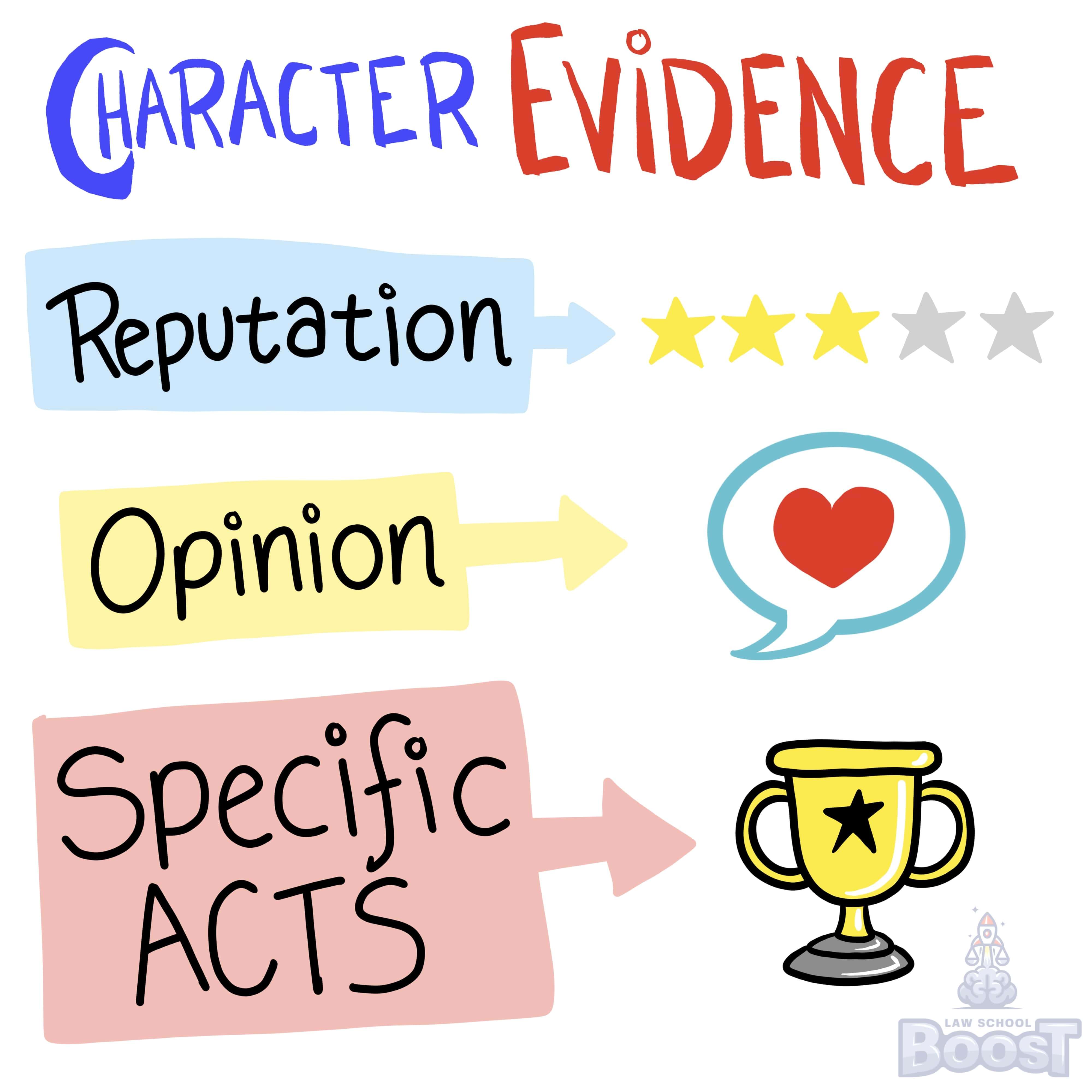🦅
Federal Evidence • Character Evidence
EVID#066
Legal Definition
Character evidence is the use of a trait to suggest the trait makes it more likely that a party engaged in the particular conduct at issue in the case.
Plain English Explanation
Character evidence is like trying to predict someone's actions based on their past behavior or what people think of them. Let's say someone is known for always being honest. If they're accused of lying, a party may want to use character evidence to argue, "They're usually honest, so it's unlikely they lied this time." This evidence can take different forms. It could be what people generally say about them (like "everyone knows Bob as a trustworthy guy"), someone's personal opinion (like "I've always found Sam to be honest"), or specific things they've done before (like times when Bob returned lost wallets).
Character evidence is generally only admissible in civil cases where the character trait itself is in issue, however, there are circumstances where it may be applicable in criminal cases as well. It's generally pretty easy to spot character evidence — the hard part is knowing when it is allowed and when it is not. We'll cover the various ways in their own cards.
Character evidence is generally only admissible in civil cases where the character trait itself is in issue, however, there are circumstances where it may be applicable in criminal cases as well. It's generally pretty easy to spot character evidence — the hard part is knowing when it is allowed and when it is not. We'll cover the various ways in their own cards.
Visual Aids

Related Concepts
How do California's rules differ from the Federal rules when it comes to introducing character evidence in a case involving sexual assault or child molestation?
How is the process of offering character evidence generally handled in California?
How is the process of offering character evidence generally handled under the Federal rules?
If the defendant offers evidence of a victim's bad character, what can the prosecution offer to rebut?
In California, if the defendant offers evidence of a victim's violent character, what can the prosecution offer to rebut?
In California, when can prior acts of domestic violence or elder abuse be admissible?
In cases involving sexual assault, when may a defendant introduce specific act evidence?
What are habit and custom evidence?
When assessing character evidence, what are non-character purposes?
When is character evidence admissible in civil cases?
When is character evidence admissible in criminal cases?
When is character evidence admissible in homicide cases involving self defense? What kinds are admissible?
When is evidence of prior sexual assault or child molestation admissible?


